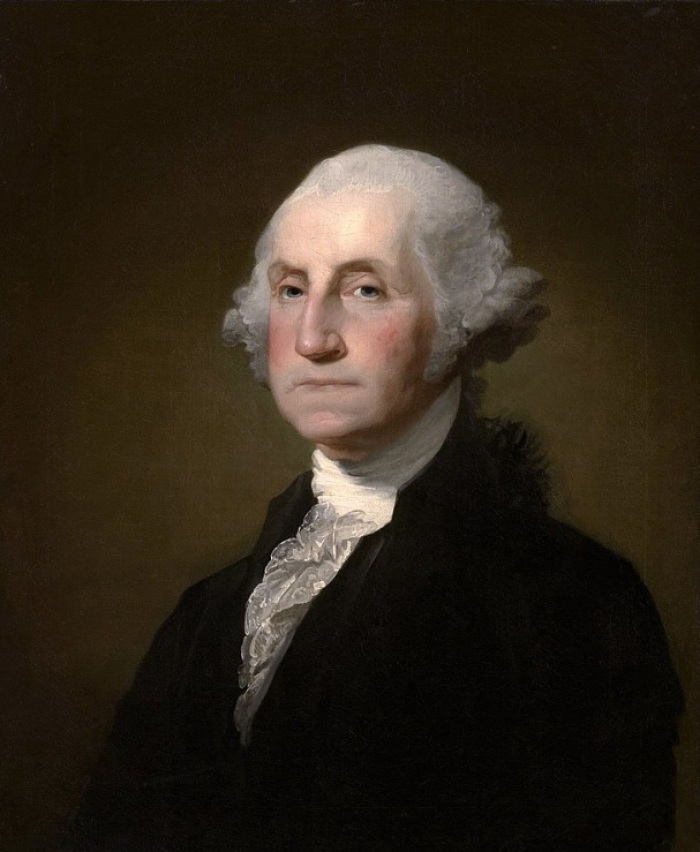On Washington's birthday, let's remember his biblical economics

Happy Washington's Birthday. That's the official federal holiday, although the press and some states have attempted to transition the day over to being a general recognition of past presidents, the day remains Washington's Birthday. I think that's appropriate, because, although all mankind is created equal, not all presidents have been equally good models for the office. Washington deserves special recognition for setting the template for all who came after. Not all his successors followed Washington's example, but nevertheless, he set the standard by which all have been to come degree compared. Most important, is the way in which Washington appealed to scripture to set out a vision for America. His favorite verse was:
"And each of them will sit under his vine And under his fig tree…"
(Mic. 4:4 NAS)
Similar statements occur in 1 Kings 4:25 and Zachariah 3:10, with some minor variations. The former verse uses that phrase to describe the conditions associated with the reign of King Solomon: peace and prosperity. Zachariah treats it as a prediction and adds the element of sharing with neighbors, and Micah connects it with the lack of war and the absence of fear. It is likely that Washington was quoting the Micah version, since he sometimes in his correspondence added the phrase about no one making them afraid, which is unique to Micah's version.
Per professor Daniel Dreisbach, an authority on the use of Scripture during the founding era, the verse was quoted over 40 times by Washington in his writings, more frequently than any other passage. Interestingly, he quoted in his the famous Letter to a Hebrew Congregation.
The passage affirms the principle of private property, treating it as a social good. It also affirms the universality of the system of private property in that Washington applied it to the Jews, a group which had often suffered the seizing of property by the state. The verse also was associated with refugees from the old world. Peoples who had their property seized would come to America as economic, religious and/or political refugees. Americans greeted them and welcomed them to a place where they would be afforded the opportunity to "sit under their own vine and under their own fig tree".
Washington's repeated and wide invocation of this passage reveals important things about him and about the founding. He believed in private property. He believed that private property was for all people. Yes, of course, he held slaves. He knew it was wrong, but was unwilling to give up that advantage, though he did arrange things in his will so that the slaves that he owned could be freed upon the death of his wife: A Decision to Free His Slaves · George Washington's Mount Vernon. All have sinned and fall short of the glory of God, and Washington on this point failed to trust and obey God, favoring his wife over justice for his slaves. But Washington stood out among his contemporaries as a man of humility, willing to leave behind power when he could have made himself an emperor. When the king of England learned that Washington would willingly give up power he declared him "the greatest man in the world".
Why did Washington leave power? He gave posterity the reason; he wanted to sit under his own vine and under his own fig tree at Mount Vernon. Some historians believe that Washington's example as an entrepreneur came close to matching his example as a president and there is some reason to believe that Washington's desire was to do just that, mentioning "commerce" or "commercial" several times in his Farwell Address: George Washington's Farewell Address · George Washington's Mount Vernon.
What is clear is that the Scriptures were important to Washington in the formulation of his economics, giving him a firm foundation for private property, for that right to apply to all, to believe in human betterment through economic productivity. This last point is important because it shows that Washington avoided medieval forms of spiritual otherworldliness. Western civilization struggled under an economic system which saw wealth creation as inherently unspiritual, an idea which comes from pagan Greek theology and its contempt for commerce and not from the Bible (though there were, and still are, attempts to force an economic stagnation agenda onto certain Gospel texts ripped from their original context). Washington didn't push these Hebrew prophecies back into Judaism writing them off as no longer relevant in the New Testament era. Neither did he push such promises off into a some "end-times" future after the Second Coming. He saw those blessings as inherently good and properly a pursuit for Americans. By doing so, America prospered beyond the wildest dreams of previous history.
Today, on Washington's Birthday, we take a moment to remind ourselves of these passages which so moved him, and also moved history towards human flourishing and to remind ourselves of this foundational vision for our drifting nation.
Jerry Bowyer is financial economist, president of Bowyer Research, and author of “The Maker Versus the Takers: What Jesus Really Said About Social Justice and Economics.”





























